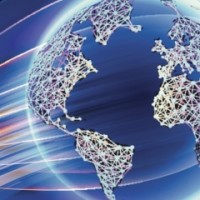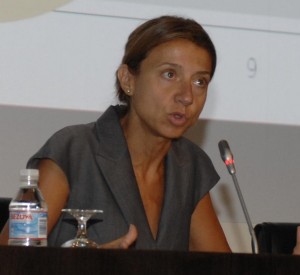Telefónica Public Policy & Telefónica España Regulatory teams
 This week the EC is organizing the 11th edition of the Green Week, the biggest annual conference on European environment policy. This year’s theme is “Resource Efficiency – Using less, living better”. But what does that mean? Janez Potocnik, European Commissioner for Environment, explained in his opening speech that resource efficiency “is not just about making our resources go a little further – this would be underestimating the level of change needed, it would be just delaying the inevitable. It is about making our resource-use sustainable, so that we can stay within the Earth’s limits in the long term.” Taking into account that the Earth’s resources are limited and that the world’s population grows by 140,000 people per day, it seems imperative that, if we want to continue with our life-style in the long term, we must use resources in a long-term sustainable way, especially energy consumption. But how can we do that in a growing and connected society? The EC believes that “the very foundations of the systems in which consumers and business operate – energy, industry, transport – will need to fundamentally change.” These are no small words, but do not really explain how we can change the very foundations of these systems. This is where the second part of this year’s theme comes in: we have to use less to live better. This assertion might seem contradictory but it is not: using less, Comissioner Potocnik believes, is “getting more value from less.” Not only the EC, but also the UN, state that, in order to be resource efficient and get more value from less use, we must decouple resource-use from economic growth. Achieving this seems a big challenge since “we are locked into systems, infrastructures, policies and habits that were designed for days when resources and ecosystems were not under such threat.” Important factors for a fundamental change are a good policy framework and a committed private sector which support the required change.
This week the EC is organizing the 11th edition of the Green Week, the biggest annual conference on European environment policy. This year’s theme is “Resource Efficiency – Using less, living better”. But what does that mean? Janez Potocnik, European Commissioner for Environment, explained in his opening speech that resource efficiency “is not just about making our resources go a little further – this would be underestimating the level of change needed, it would be just delaying the inevitable. It is about making our resource-use sustainable, so that we can stay within the Earth’s limits in the long term.” Taking into account that the Earth’s resources are limited and that the world’s population grows by 140,000 people per day, it seems imperative that, if we want to continue with our life-style in the long term, we must use resources in a long-term sustainable way, especially energy consumption. But how can we do that in a growing and connected society? The EC believes that “the very foundations of the systems in which consumers and business operate – energy, industry, transport – will need to fundamentally change.” These are no small words, but do not really explain how we can change the very foundations of these systems. This is where the second part of this year’s theme comes in: we have to use less to live better. This assertion might seem contradictory but it is not: using less, Comissioner Potocnik believes, is “getting more value from less.” Not only the EC, but also the UN, state that, in order to be resource efficient and get more value from less use, we must decouple resource-use from economic growth. Achieving this seems a big challenge since “we are locked into systems, infrastructures, policies and habits that were designed for days when resources and ecosystems were not under such threat.” Important factors for a fundamental change are a good policy framework and a committed private sector which support the required change.
I believe that Information and Communication Technologies (ICTs) will play a major role in making our economies and societies sustainable. Innovations from the ICT sector can make all our systems “smarter”. The basis for that is wide-spread connectivity of people and machines due to communication networks. So-called “smart grids” can for example reduce energy consumption by real-time measurements of consumption and thereby better planning and forecast for energy producers – without the end-users having to change any behaviour. Other examples how the ICT sector already supports many businesses and users worldwide to reduce their CO2 emissions with innovative solutions are virtual services or smarter transportation systems and fleet management.
Telefonica for example started in 2009 a service for business clients in Spain to better manage their energy consumption by a centralized facility-management. This has leaded our clients to reduce their overall energy usage by 30%, saving the environment many CO2-emissions – and a huge amount on our customers’ energy bill. Such examples show how we believe ICT-based solutions can help reducing the carbon footprint of our economies and societies. Therefore, I am really convinced that the outcomes of this year’s Green Week and the commitment of the Commission to support innovative ICT solutions contribute to the development of a more sustainable Europe and will mean another step to make this transformation become reality.
Silvia Guzmán, Telefónica’s Environmental and Sustainability Director. She is in charge of the Business Principles Office and the Climate Change and Energy Efficiency Office.








